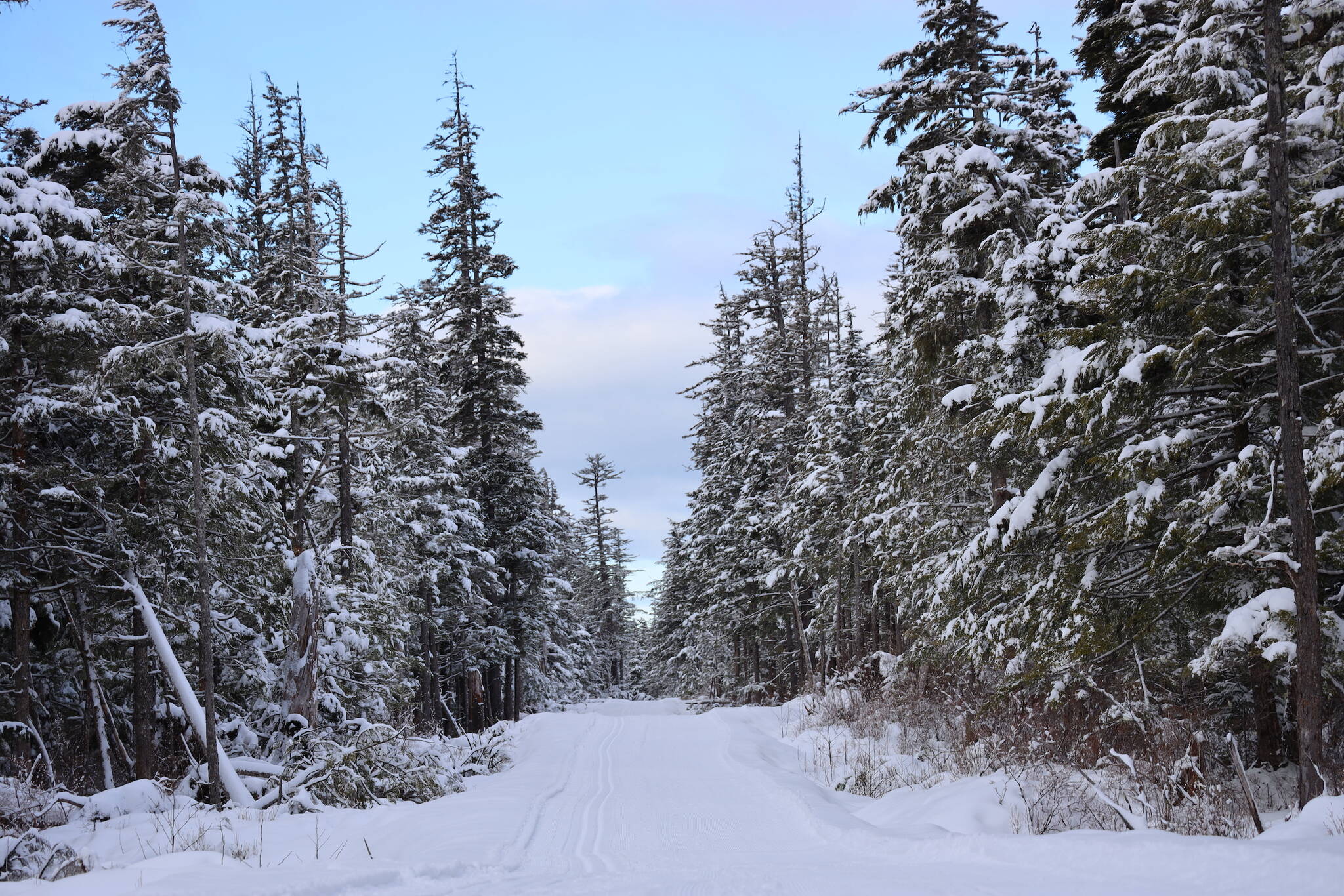The latest debate over a commercial use permit to use city land for a bike tour seems overblown.
The permit request is for a locally established company, iRide, to operate limited e-bike tours on a remote city-owned road. The road, officially known as the “West Douglas Pioneer Road,” is part of a decades-old effort by the CBJ to open the far side of Douglas Island to development. The gravel road, completed in 2017, is 3.5 miles long.
Most people believe that roads should be used for vehicular traffic, but according to opponents of the permit, commercial use would be hazardous to other users and infringe on locals now using it as a trail. Since the road is not yet built to highway standards, it is closed to motorized traffic but has been used recreationally by bikers, hikers and skiers since it opened.
Kim Metcalfe, a frequent critic of the cruise industry, has long decried impacts of visiting ship passengers on downtown Juneau and local neighborhoods and recently testified against granting the permit. However, recreational venues such as this would serve to mitigate those impacts by spreading visitors out more widely and lessening congestion in downtown Juneau.
In this case, the fact a road is being used temporarily as a trail shouldn’t prevent commercial use on it.
The city also wrestled with the definition of “motorized vehicle.” Depending on whether a battery assisted e-bike is defined as such could affect the permit approval. Yet, it is hard to see why it should be classified the same as an automobile, ATV, or motorcycle. It makes no noise and is operated in exactly the same way as a regular bicycle. In fact, 37 states have already passed legislation classifying e-bikes as non-motorized vehicles and similar legislation is now pending in the Alaska Legislature.
Apparently, most CBJ Assembly members agree and an enabling draft ordinance will likely be formally introduced during the Assembly’s next regular meeting.
Beyond the road vs. trail issue, some Assembly members correctly see this discussion in the larger context of economic development. Cruise tourism is a major (and critical) component of our economy and that is not going to change anytime soon. According to a 2017 McDowell Economic Impact Study, the visitor industry contributed as much as $218 million in direct spending, 2,800 full and part-time jobs, and $109 million in labor income which resulted in $13.5 million in municipal sales and property tax revenue. These numbers will undoubtedly be significantly higher this season. In addition, $21.5 million in marine passenger fees and docks and harbor fees are projected to flow directly into city coffers this next year.
Efforts to severely regulate cruise ships have been unsuccessful, most recently in 2021 when a proposed initiative to limit cruise ship size and hours in port failed to garner sufficient signatures to qualify for the ballot. However, more reasonable measures such as a city task force recommendation for a five large-ship limit and ban on “hot-berthing” seem acceptable to most Juneauites.
Cruise tourism impacts can be managed in a way that balances the trade-offs inherent in any large-scale activity in a town our size. The Juneau Assembly can achieve this without discouraging investment in new attractions/venues that will add to city revenues and alleviate congestion in other areas. Besides the proposed e-bike tour, the city is moving ahead on the Eaglecrest gondola project, and studying the proposed Aak’w Landing dock project at the subport property.
The industry and city officials have done a creditable job in managing visitor industry impacts to date. In a December 2022 Tourism Survey by McKinley Research Group, 87% respondents felt the industry either had no impact, a positive or neutral impact, or more positive impacts than negative impacts. (This is an increase over the 2019 season survey that reported 80%).
With higher numbers of visitors expected this season, the cruise industry’s Tourism Best Management Practices program will continue to be instrumental in moderating impacts.
Instead of getting bogged down in road vs. trail issues, it’s gratifying to see that the CBJ Assembly believes their time is better spent looking at the bigger picture of essential economic development.
• After retiring as the senior vice president in charge of business banking for KeyBank in Alaska, Win Gruening became a regular Opinion Page columnist for the Juneau Empire. He was born and raised in Juneau and graduated from the U.S. Air Force Academy in 1970. He is involved in various local and statewide organizations. Columns, My Turns and Letters to the Editor represent the view of the author, not the view of the Juneau Empire. Have something to say? Here’s how to submit a My Turn or letter.

